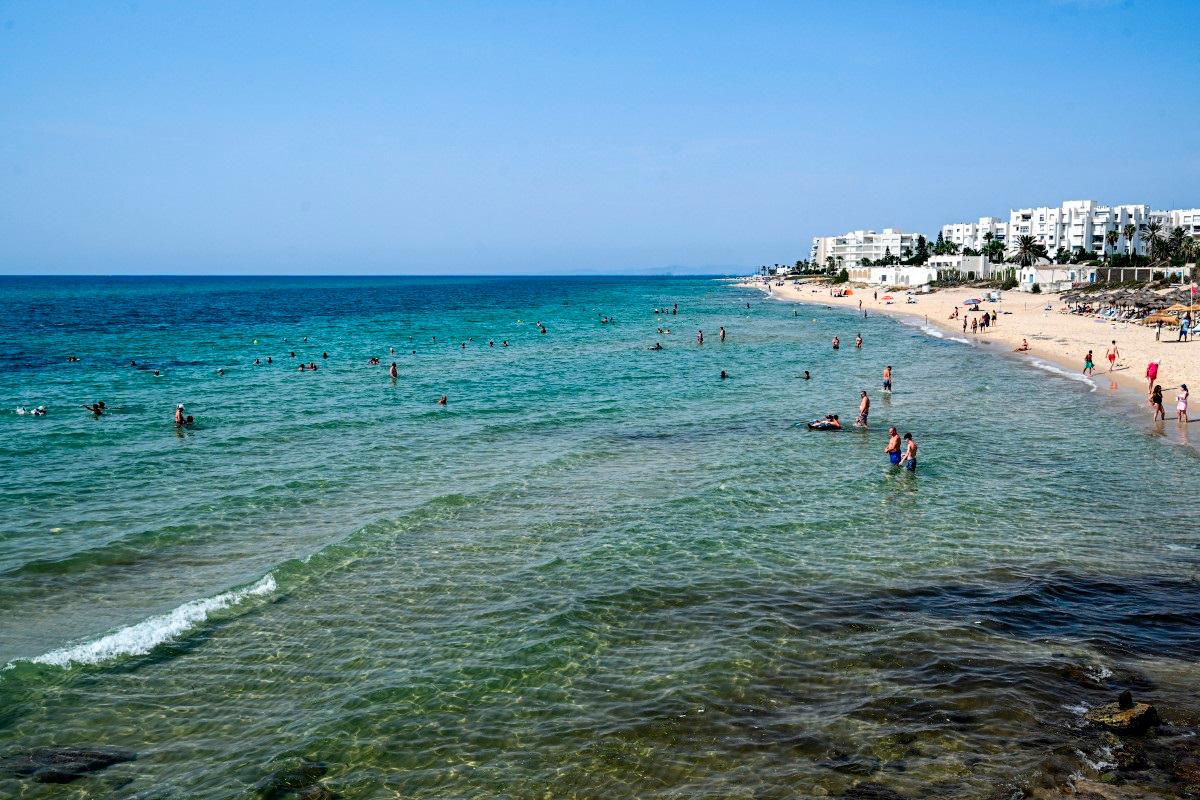SOUSSE: European tourist numbers have rebounded significantly in Tunisia a decade after a devastating beach attack that killed 38 people and crippled the country’s vital tourism industry.
Foreign arrivals increased by nearly 10% this year compared to 2024, reaching 5.3 million visitors through July 20 according to the National Tourism Office.
The government aims to attract 11 million visitors by year-end, building on last year’s 10 million total as confidence returns to the North African destination.
British tourism has shown the most dramatic recovery with a 48% surge through June according to Dora Milad, head of Tunisia’s hotel federation.
The British embassy forecasts approximately 400,000 British tourists will visit Tunisia in 2025, matching pre-2015 levels according to ambassador Roddy Drummond.
Drummond credited improved security measures for restoring visitor confidence in Tunisia as a safe destination following the tragic events of 2015.
A Tunisian university student had opened fire on vacationers outside a Sousse hotel in June 2015, killing 38 people including 30 British nationals in an attack claimed by the Islamic State group.
The shooting occurred just months after another attack at the Bardo Museum in Tunis that killed 21 foreign visitors, devastating Tunisia’s tourism industry and economy.
Tourism represents one of Tunisia’s most vital economic sectors, generating about 700,000 jobs and serving as a crucial source of foreign currency for the nation.
Maher Ferchichi, general manager at the Pearl Marriott in Sousse, noted that more than 90% of their European guests were British, reflecting “a return of trust in Tunisia as a safe destination”.
Longtime British visitor Eileen Cuciurean observed significantly more British tourists at her hotel compared to recent years when she sometimes felt like the only one.
Diane Paul, a 74-year-old tourist from Wales staying near the attack site, knew people who survived the 2015 shooting but refused to let fear prevent her from returning.
“Nowhere is safe,“ Paul stated, adding she decided not to let fear make “us prisoners in our own country” despite knowing the risks.
While resort operators celebrate the recovery, many small businesses and artisans complain that all-inclusive package models keep tourists confined within hotel compounds.
Mourad Hadhari, a crafts vendor in Tunis’s medina, noted that millions of tourists arriving each year don’t necessarily translate to increased revenues for local merchants.
“It’s true we have millions of tourists, but they just come to sleep and eat at the hotel,“ Hadhari explained regarding the current tourism model.
Ahmed Bettaieb, head of the federation of travel agencies, confirmed that group tours and package deals represent approximately 70% of yearly foreign visits.
Industry leaders are pushing for higher-end investments and improved flight connectivity to sustain the tourism recovery beyond current levels.
Milad identified limited direct low-cost flights as a major constraint on growth despite Tunisia’s attractive beach tourism offerings.
“We need more flights outside the high season,“ Milad emphasized regarding the need for better year-round air connectivity to support continued tourism growth. – AFP









